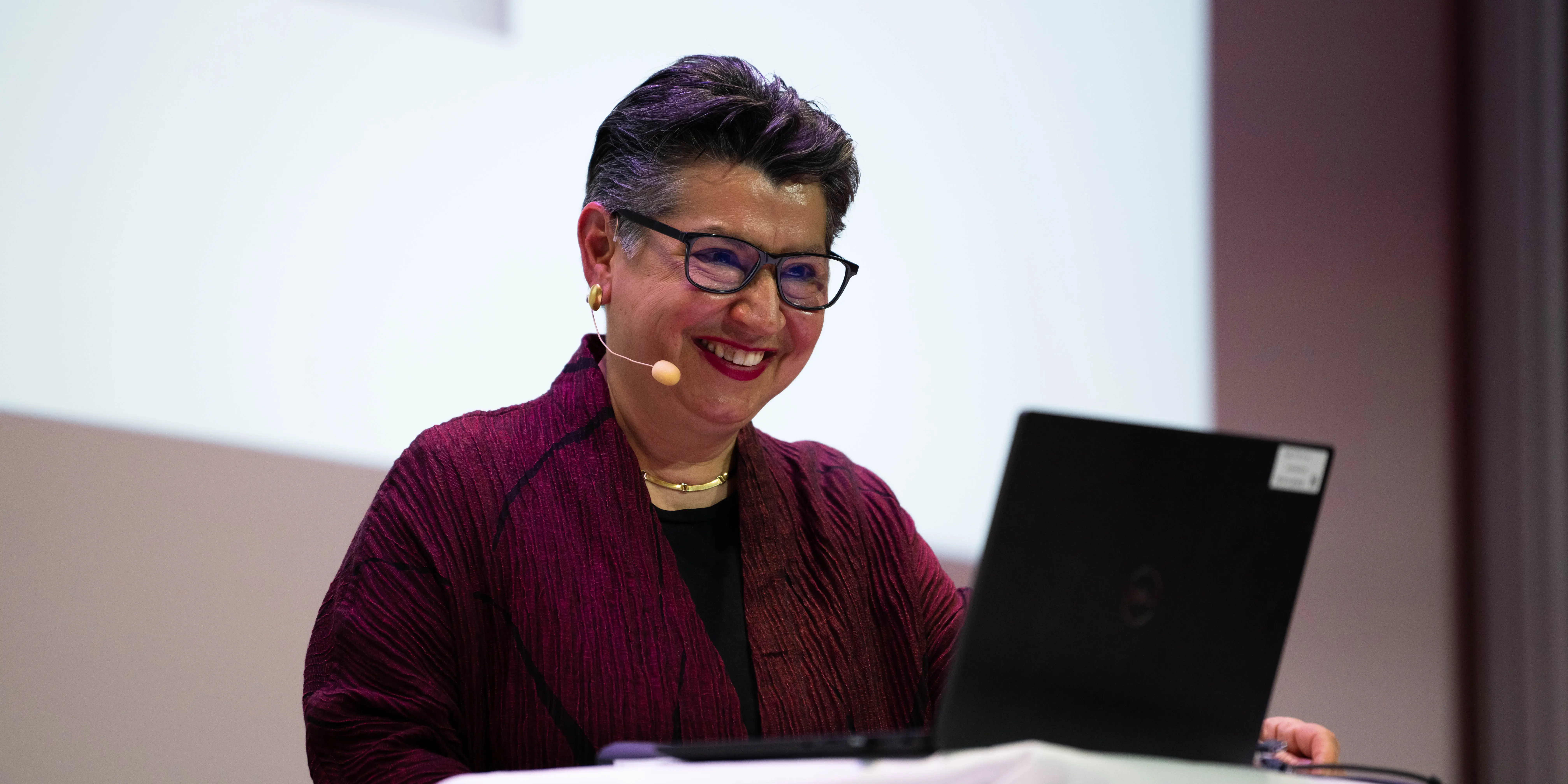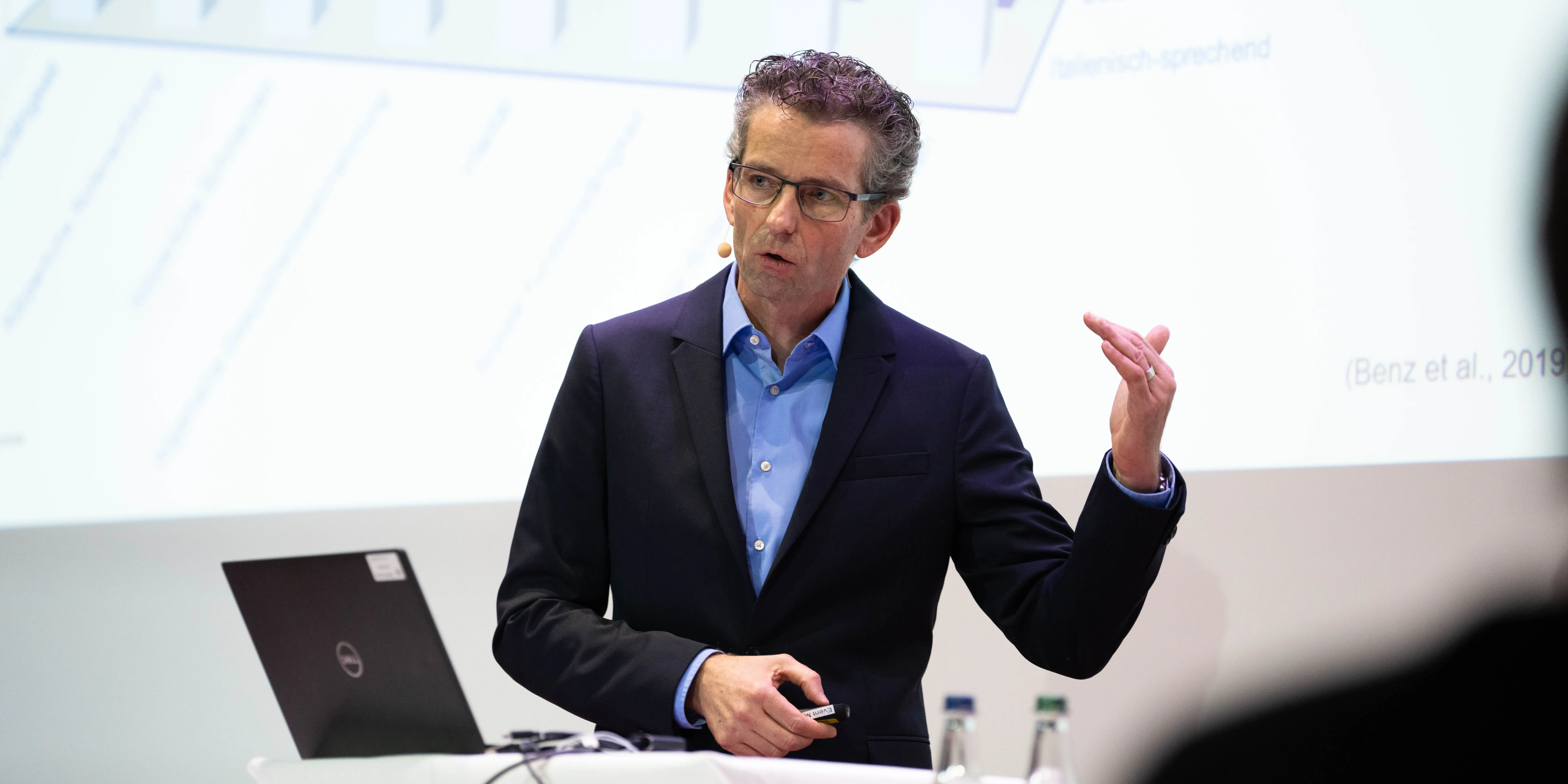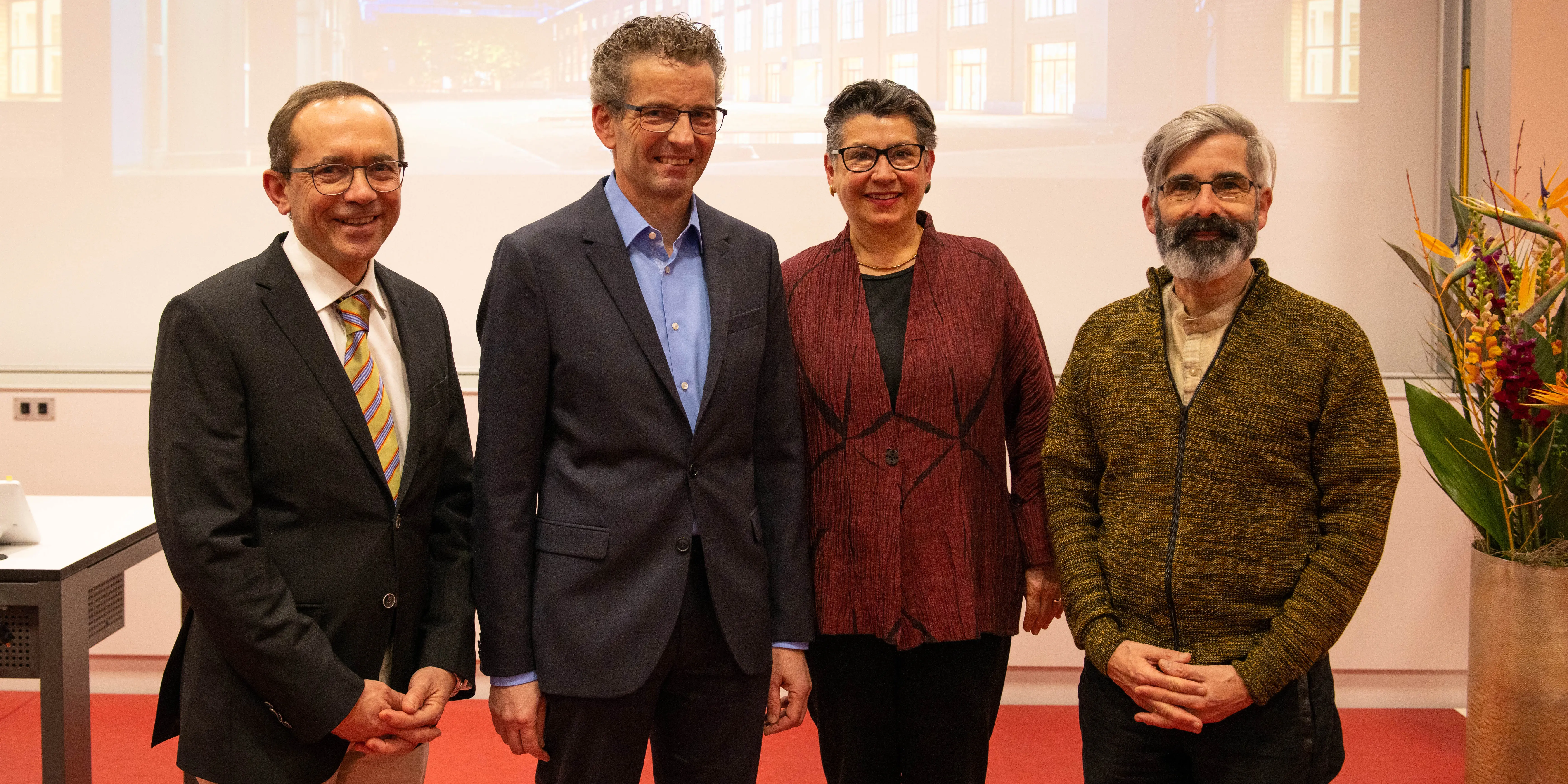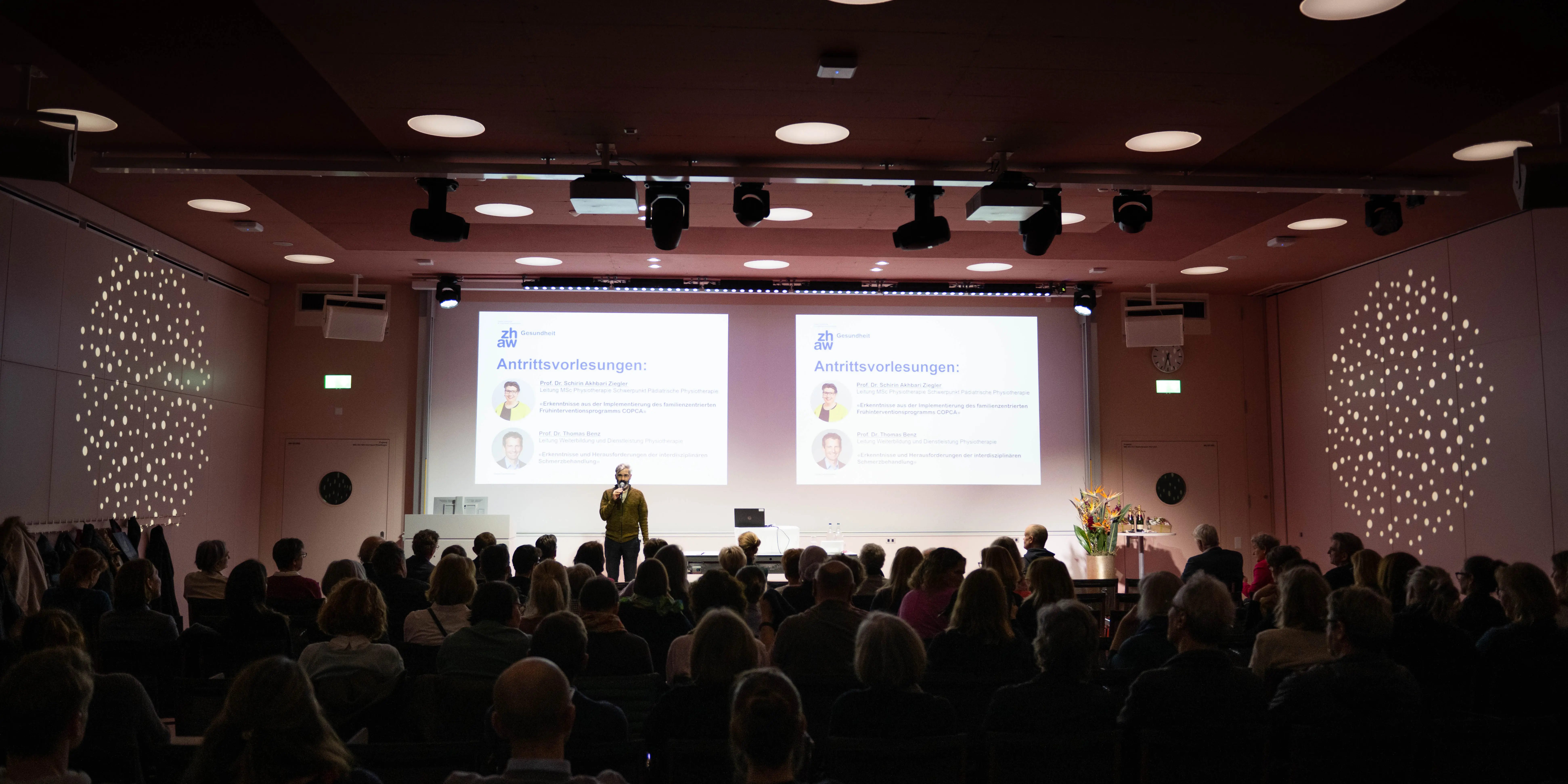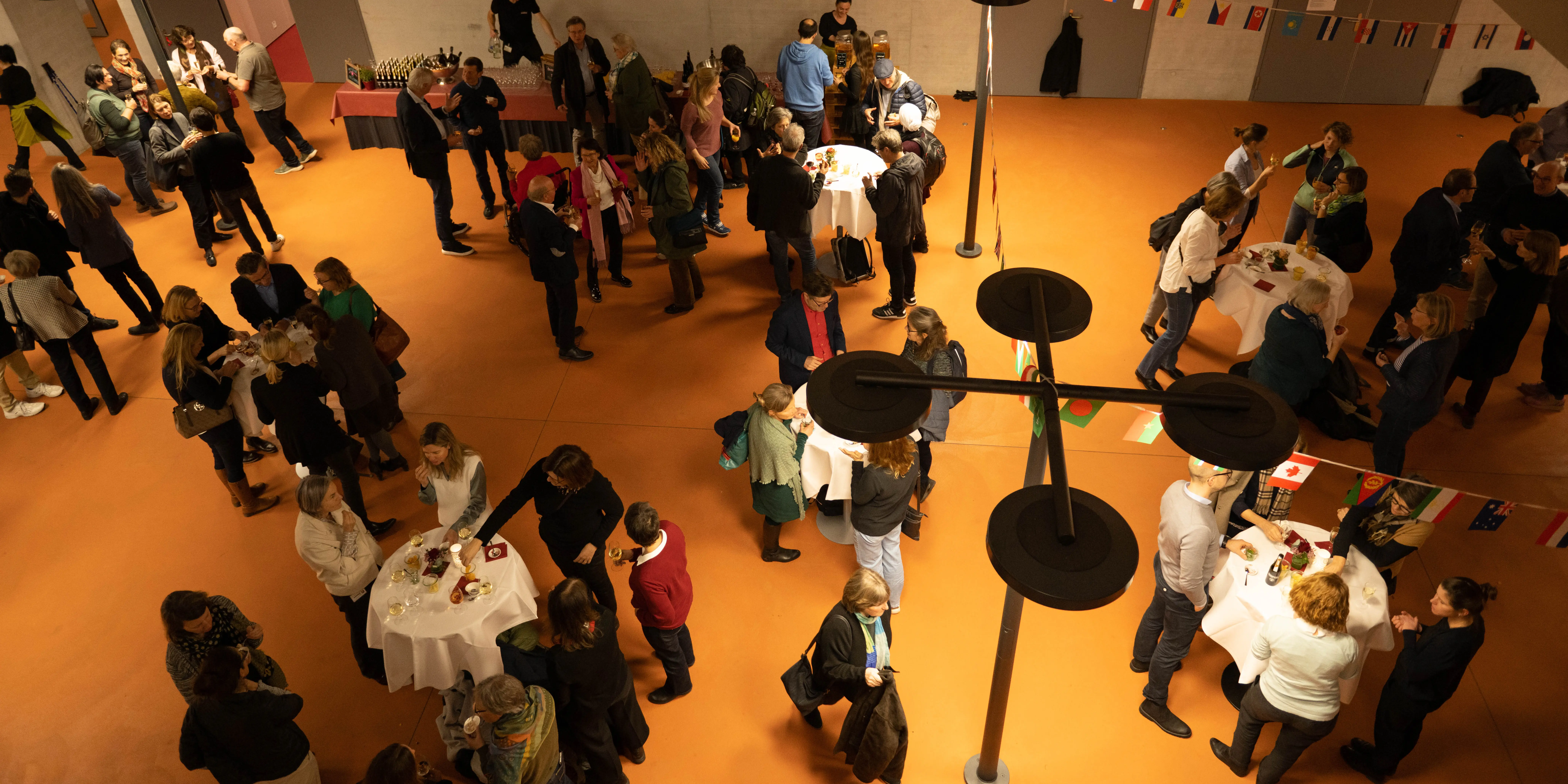Two new professors present their research areas
Family-centred early intervention programme and interdisciplinary pain management: On 12 December, Prof. Schirin Akhbari Ziegler and Prof. Thomas Benz gave their inaugural lectures at the ZHAW School of Health Professions.
Prof. Schirin Akhbari Ziegler, who also works as an independent paediatric physiotherapist alongside her role as a lecturer, used her inaugural lecture to summarise her findings from the implementation of the COPCA family-centred early intervention programme. COPCA, which stands for “Coping with and Caring for Infants with Special Needs”, represents a paradigm shift in the field of physiotherapy. Under this programme, parents are involved as active and equal partners, while the physiotherapists act as coaches, enabling the family as a unit to care for a young child with special needs. The aim is to help parents learn to support their infant’s motor development during everyday life in an autonomous and optimal manner.
Children and parents find their own strategies
Using an impressive video, Prof. Schirin Akhbari Ziegler demonstrated to an audience what a COPCA intervention, which usually take place at the families’ homes, looks like. In the video, the mother learns how to motivate her infant to turn from the supine to the prone position by itself. The physiotherapist remains in the background, observes the situation and encourages the mother to challenge her child with a toy, for example. If the infant wants to reach out for it, the mother positions it a little further away, meaning that the child has to stretch and move more and more. “It is important that the child discovers the turning movement for itself and finds its own strategy,” opines Prof. Schirin Akhbari Ziegler. And when the infant does in fact manage to turn onto its stomach by itself after engaging in the toy challenge for a short period, there is spontaneous applause from the audience.
For the professor, the basic attitude of the therapists and their coaching skills are important prerequisites for success. “Both the parents and the child need to be expected to have competencies, while everybody involved should take the time required for this process.” The COPCA programme not only necessitates a change in roles and behaviour, but also the corresponding training. The ZHAW has been offering this under the guidance of Prof. Schirin Akhbari Ziegler since 2019.
Interdisciplinary treatment of chronic pain
The inaugural lecture of Prof. Thomas Benz, who is also a research associate at the research department of the Bad Zurzach rehabilitation clinic, was dedicated to findings in the field of interdisciplinary pain treatment and the challenges faced here. Chronic pain, in particular, represents a major problem worldwide. In Switzerland, some 16% of the population suffer from chronic pain that often has a considerable impact on their quality of life. For example, people who are in constant pain also have difficulty sleeping and suffer from anxiety. Those affected cannot participate in social life to the same extent as before and, depending on the situation, may also be unable to work.
Research faces challenges
“Chronic pain not only has a physical and psychological impact on those affected, but also has social and economic consequences,” summarised Thomas Benz. These individuals therefore require “multidisciplinary treatment that takes account of more than just biomedical or physical aspects.” Benz presented studies that show that comprehensive pain management as part of an interdisciplinary treatment programme is more effective than standard medical treatment. However, interdisciplinary teams and research are still confronted with a number of challenges: for example, there is still no consensus with respect to therapeutic measures, while there have also only been very few studies to date, explained the professor. “As you can see, there’s still a great deal to do, so I am unlikely to find myself bored before my retirement,” he added with a wink, backing up his previous statement.
